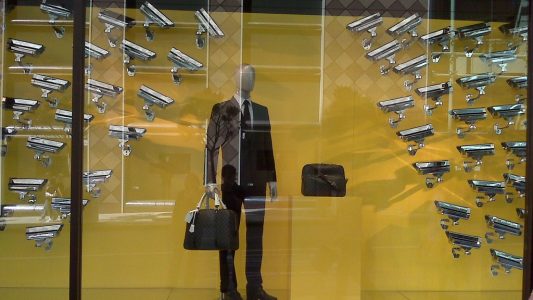This morning I was awoken by the alarm on the Android phone I’m reviewing. Before getting up I scrolled through Twitter and checked my mails.
After a shower and a gulp of coffee I keyed the address of the venue I was driving to into Waze, and set off.
Not once did I consider that perhaps somebody was watching my every move, but I should have. In the ever more connected world we live in, the possibility that we are being watched is real, and something that deserves a proper discussion.
But the matter of cyber security is one that isn’t often discussed around a braai, or over a drink with friends. Whether that’s because it’s too complex to understand properly or the topic isn’t as controversial as what number one is doing, we don’t know.
Somebody who probably does know is Constanze Kurz. Kurz is the spokesperson for European hacking collective, Chaos Computer Club, a computer scientist, and an activist fighting for matters such as the right to be forgotten.
Looking at South Africa in comparison to the rest of the world, Kurz remarks that we are more open with our information than in countries such as Germany.
“In Germany people ask you before taking a photo and request your permission before posting it online. During one of the discussions yesterday people were taking photos of me, that would never have happened in Germany,” Kurz explained.
And she has a point: how many pictures are there on Facebook that you didn’t upload and that you have no control over? As Kurz explained, this would never happen in Germany because it infringes on somebody else’s privacy.
As South Africans we are very open about the data we share, of course information like your bank details and the like we keep private but when it comes to social media, we may as well be plastering our whereabouts all over the internet.
As South Africans, not very many of us understand the consequences of what posting content to Facebook may have, unless your name is Penny Sparrow. But while you might think stalkers are scary, having your government be able to access every facet of your life is very frightening indeed.
Every time you geo-tag a photo you’ve taken at home or at a friend’s house you leave a digital footprint that will allow somebody to track you. When you visit a website you gather cookies and the biggest threat is your search engine. “People are the most honest with their search engine because they want to find exactly what they’re looking for,” Kurz tells us.

This is especially problematic when the surveillance is being done by a machine who groups terms and flags them for a human to address. Search “how to win as terrorists” for Counter Strike: Global Offensive, and you’re flagged. Downloaded TOR browser? Take a red flag.
“I have nothing to hide”, you might say and while that may be true there are most definitely things you don’t want people to know about you. Be it a strange fetish or even how much you drink at the weekend, we should be allowed to keep certain parts of our life private.
And that discussion needs to happen in South Africa – now. We need to educate people about the dangers of sharing every detail of your life online and we need to understand our rights on the internet.
At the moment its open season and because we don’t know what our police and intelligence agencies are allowed to do, they can do anything.
When Edward Snowden leaked all those documents it showed us something that we all secretly feared. The United States government was watching its citizens, without them even knowing it.
While you think that will never happen in South Africa, are you so sure?
Child pornographers are regularly caught in South Africa and if our police were as inept as you think they are, how pray tell do you think they managed to track them down. As cool as the image of a bloodhound sniffing the trails of criminals are, we prefer to think our police have a working cyber crimes division. But can you name off hand, accurately what that division is and isn’t allowed to do?
So what should we be doing? We should all be taking a more active role in what laws are being put before parliament and, critically, understand what is being proposed. We should also have a clear understanding of what is and isn’t possible for authorities to do and how they can, or cannot track you.
The end of freedom is not near, but if we sit idly by as laws and legislation are passed that might grab that freedom, it might pass us by as we have our noses buried in our mobiles, laughing at a tweet.
[Image – CC SA BY/2.0 Cory Doctorow]

